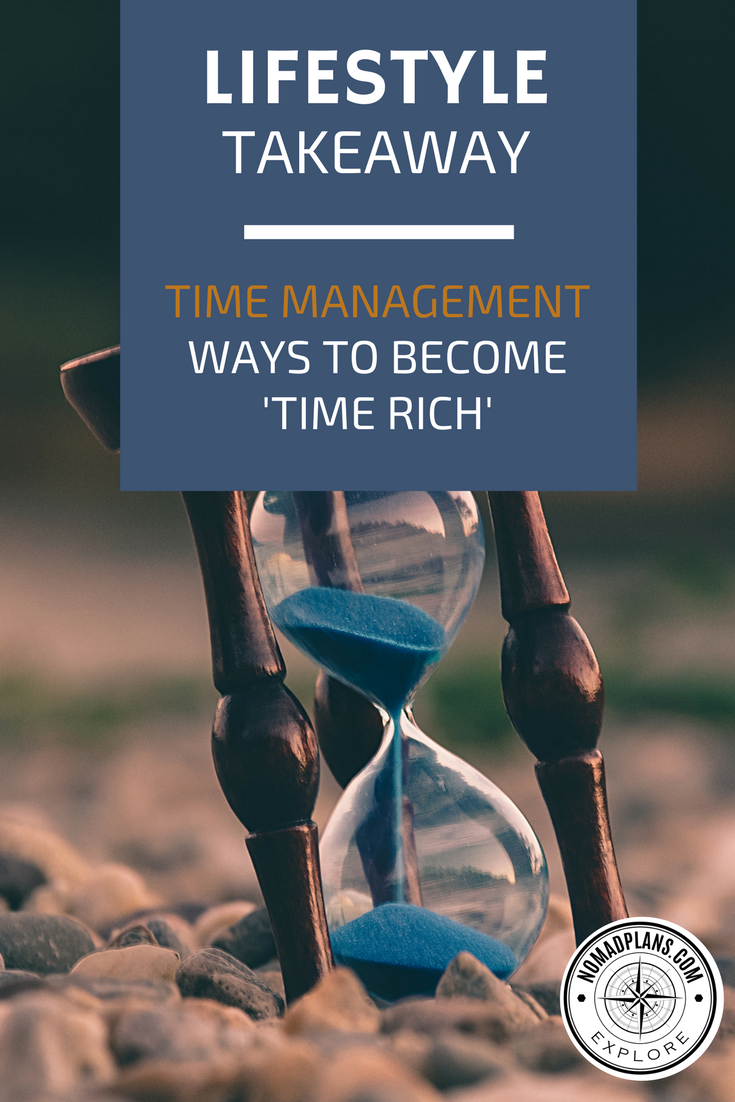“Time is free, but it’s priceless.
You can’t own it but you can use it.
You can’t keep it but you can spend it,
Once you’ve lost it you can never get it back.” Harvey Mackay
Time, the great equaliser, waits for no man… If asked, most people would say they would like more time to do the things that they enjoy. Often people get frustrated due to having a “lack of time.” Some things seem to take up “too much time,” or are a “waste of time.” You’ve probably heard people say that they will do something, “when they’ve got time” or “more time.” Mastering good time management should create “more time” to do the things you enjoy.
Regardless of who you are, where you live or how much money you earn, your daily time allowance is the same. 1440 minutes is the standard quota! Sounds a lot when you say it in minutes! Time can’t be bought and when your times up, it’s up… So are you making the most of your time? Are you using your time wisely and actively choosing how to spend it? Or, is your current lifestyle robbing your “time bank” without you being aware of it? Read on to see how prioritising time management is the key to maximising your time.
First things first
So, we’ve established everyone gets the same number of minutes in their day, but how do you use yours? Although people’s lifestyles vary tremendously, demands, expectations and responsibilities too – good time management is essential for anyone who wants to utilise their time effectively. Planning your time carefully will almost certainly “free you up,” to do other things. Equally so, prioritising what is important as opposed to reacting to what appears “urgent,” is vital.
Take a moment to think about your typical day. Although “work” may feature, in one form or another, consider the time you have around the “edges” of your job. I appreciate some people work nights, others do an afternoon shift, you may be “on call,” or if you work for CSI or the mountain rescue service have to be available at the drop of a hat… But, most people, most of the time have a work “routine” and those who work for themselves have probably created one, of sorts.
Audit your time
So, firstly, establish how many hours you have, per day, outside of “work.” Then think about how you spend that time. How much time do you have in the morning/evening and at the weekend? What takes up the majority of your “spare time?” In your “spare time” are you actively choosing what you are doing, or doing what is “necessary” or “needed?” Are you constantly “reacting” or “planning” in order to put time in your bank?
In my experience, lots of people are always really “busy,” but are not particularly “productive.” A general lack of forward planning “steals” from the “time bank.” Time management does not feature, examples of this could be:
Constantly going backwards and forwards to the supermarket
- Sit down and plan a menu, for the week. Write up a menu and shop accordingly. As you “run out” of something, add it to next weeks shopping list. Maybe do an “online” shop, particularly if you rely on public transport to get about.
Cooking from scratch most nights
- Batch cook one day a month, freeze meals ahead. Use a slow cooker.
Being a slave to household chores
- Yes, a certain standard of hygiene and level of cleaning is required. But, a clutter-free, organised home with “systems” in place is far more manageable.
Always “looking” for something
- frantically searching for things often creates more mess and definitely wastes time… know where all your essential items are, have a place for them and keep them there.
Watching programs on “real-time T.V”
- If you choose to watch the T.V, be sure to ditch the adverts by recording and fast forwarding everything.
Engaging in “Habitual behaviours”
- Are you still watching the same soaps as you did 10 years ago? Is that because you enjoy them, or because 7.30pm triggers a “put my feet up,” and “tune in,” response? Are your 3 “free” hours spent actively choosing to watch T.V or is it something you do on autopilot? Could you be doing something you enjoy that you haven’t got time to do?
“Either you run the day or the day runs you.” Jim Rohn
Surfing and scrolling
- How much time do you spend browsing the web and engaging in social media? If you haven’t got time to learn Spanish but spend an hour a day “scrolling” – are you making a good choice? It’s easy to get sucked into the world of social media, flicking from this to that – but how useful is it?
Being a busy “unproductive” bee
Do you find yourself constantly listing, or telling others about all the things you have to do without actually getting anything done? Commit yourself to a specific day and time to do a “task” or “job.” Whilst I appreciate ongoing projects take a sustained period of time, lots of things we “talk” about doing are relatively straightforward and could be quickly crossed off the list.
It is important to really consider how you want to use your time and actively make changes to ensure you are getting the best deal from your “time bank.”
Collecting baubles
Are you a Christmas Tree? Are you prone to collecting other peoples “decorations” and pinning them on your branches? Although helping people out is great and sometimes necessary, are you inadvertently “disabling” others and contributing towards their “dependency.” Does this provide you with an excuse for not doing the things you say you want to? When possible, empower others, teach the skills and provide an opportunity for them to learn and take responsibility.
Failing to commit to a day and time
If your brain is constantly filled with a never-ending list of “things to do,” as and when something pops into your head, how likely are the vast majority likely to get done? The day to day “necessities” may get a tick, but how far do they contribute to a sense of fulfilment and enjoyment? Try attributing a day/time to “do” whatever it is. It may be useful to piggyback regular activities onto the back of something you already do. I’ll organise a weekly meal plan on Wednesdays, after dinner – ready for when I shop on Thursday evening. I will meditate for 10 minutes, every day, before I go to bed. Schedule any far off “to dos” on a calendar. Get as much out of your head as you can, free up your brain space for those things that are really important. Make time management work for you.
Using your time on the “passing” things
Your time is precious, do you inadvertently “spend” it on things which come and go and have no lasting impact? Do you spend ages researching something, only to then make a quick decision? Do you do lots of research, fail to make a decision then find yourself “re-researching” the same thing months later? What is important to you? Are you spending time doing it? Perhaps you haven’t got time to walk 5,000 steps. You probably know all the health benefits associated with walking. Prioritise engaging in worthwhile activities which will actively contribute, long-term to your health and well being. A body and mind which will hopefully buy you “more time” is probably worth investing in…
“The bad news is time flies. The good news is, you’re the pilot.” Michael Altshuler
Also, perhaps consider changing your morning routine to allow yourself some time to do something you enjoy, before your day starts. Although the thought of getting up earlier may not appeal, a productive morning routine may free you up later on, or ensure you get some “me time” before everyone else gets up.
And finally, consider whether you are subconsciously avoiding getting certain things done because that will “supposedly” lead to that “other thing” that has been on the list for years but your scared, reluctant or worried about starting or committing to? Is it holding you back?
“Don’t spend time beating on a wall hoping to transform it into a door….” Coco Chanel
Finally, before you say “I haven’t had time to do it,” switch to “I haven’t made time to do it.” This simple shift in your language may well spur you on to actively choosing how to organise your day!
Pin it!







